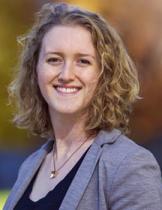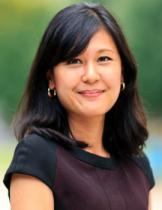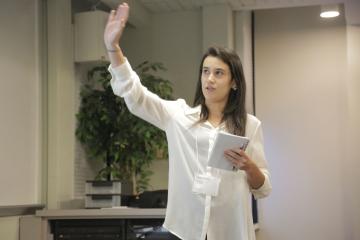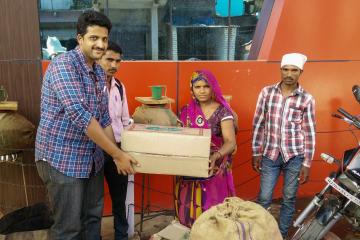
Irwan Setyawan, J-PAL ‘17, on making the jump from research to government in Indonesia
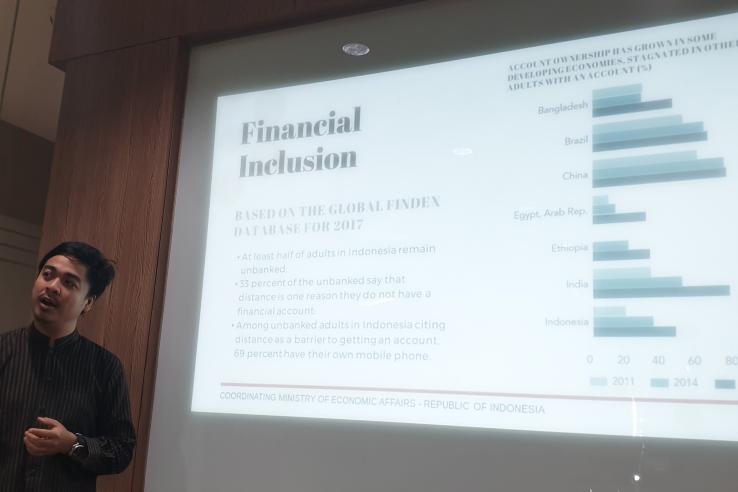
The Alumni Spotlight series highlights J-PAL alumni who are making an impact across industries and around the world. To nominate a J-PAL alum to be featured in a future Alumni Spotlight, please fill out this form.
In this installment of our Alumni Spotlight series we speak with Irwan Setyawan, a former senior research associate at J-PAL Southeast Asia. Irwan joined J-PAL SEA’s research team in 2016 after completing his master’s in banking and finance. After two years at J-PAL working on research projects related to financial inclusion in Indonesia, Irwan transitioned to a program management role within Indonesia’s National Council for Financial Inclusion. Irwan joined us to share some of his lessons learned from working in the field and then becoming a member of an influential government agency.
What inspired you to focus your studies and career on financial inclusion?
As an undergraduate I helped one of my professors on a microfinance research project, which gave me the opportunity to go into the field and talk with people about banking. That’s when I realized that access to financial products is a luxury.
Less than half of Indonesians had a savings account in 2014, which is a pressing problem given that financial inclusion is an enabler of economic growth and economic development, and can improve welfare in many ways.
So then I asked myself, how can I contribute to this from Indonesia? That's why I was inspired to get a master’s in banking and work in this field. I love doing research, so becoming a full-time researcher was an easy choice! For me, the most exciting aspect of being a researcher is knowing that I can contribute to the development of something that I care about, and potentially make a difference in people's lives.
It’s also important to acknowledge that what works in Africa or Europe will not always work here in Indonesia. Elements like the policy and regulatory landscape, religion, and even social habits are very different. It’s so important to understand local context, and to my knowledge, there were far too few local researchers and experts on the ground working in financial inclusion. I was really drawn to fill that gap.
What were some of your greatest takeaways from working on the Research team at J-PAL SEA?
I first joined the team as a research associate, and in that position I was responsible for managing fieldwork, coordinating with our implementing partner, and communicating with the PIs and stakeholders.
Running a project in the field can be challenging! I had to spend a lot of hours in the field. I worked independently, which allowed me to really learn about the research process and gain project management skills. It was really a rewarding experience.
Proper communication was one of the most important parts of my work with stakeholders. For example, I had to be able to give constructive feedback to the partners in a positive and friendly manner. And when things didn't work out (as they often did not!), I needed to have a backup plan that worked.
Truly, I think that seventy to eighty percent of my time as an RA was spent on communication with partners. The success of the project largely depends on the effectiveness of our communication. For that reason, it's really important to have good communication with partners from day one and to treat them with kindness in order to maintain a good relationship. I also learned to set aside time every week to directly address any implementation concerns and brainstorm solutions with the stakeholders.
How do you think the field of financial inclusion has evolved, both worldwide and in Indonesia?
One of the top reasons so many remain unbanked is the distance from their homes to the financial institution. But alternatives are emerging: In Indonesia, for example, 69 percent of unbanked adults have a mobile phone. This has huge potential for us if we can leverage mobile phones—digital financial inclusion will be the key to the financial inclusion.
In addition, the growing numbers of “fintech” (financial technology) companies in Indonesia will become a major innovative vehicle to promote this digital financial inclusion. I think it offers an opportunity to narrow the gap right now, because fintech reduces the costs of banking and can be scaled up. That said, effective regulation is necessary, too, in order to provide a solid foundation.
Many J-PALers go on to work in government. Could you tell us a bit about your work within the Government of Indonesia?
Now I serve as a program manager for the National Council for Financial Inclusion of the Government of Indonesia (NCFI). My day-to-day now has so many meetings! But it’s been a rewarding experience overall, since I have been able to meet with various people from industries, regulators, government officials, donors, and development agencies.
Having conversations with all these people from different backgrounds has helped to broaden my perspective on how to approach financial inclusion problems. I think the opportunity to influence the policymaking process was the most intriguing reason why I decided to join the NCFI.
What do you think are some of the most effective strategies you've seen from researchers who want to work with governments?
Now that I sit on the other side of the table, I’ve noticed a few key things that researchers can do to improve their pitches.
- Do your research before the meeting: It’s true that while you’re in the meeting you will learn more, but it’s best to go in with a clear understanding of the government’s agenda and priorities. The good news is that you can usually find this kind of information on the government website or in the media!
- Keep it short: The person you’re meeting with might only have fifteen minutes to talk with you. Go in with a few clear slides or a concise written brief, avoid jargon and dwelling on methodology, and don’t be abstract with your proposal.
- Attitude is important: Policymakers don’t need you to tell them what the problem is—they want to hear your solution. It’s best to present your approach with a positive and humble attitude.
- Have a clear follow-up plan: The true impact of the meeting is determined by what happens after!
Finally, what advice would you have for those who are interested in transitioning from a research role to a government role?
The policymaking process takes time. There is much to learn: You’ll need to get used to new organizational structures, bureaucracies, different goals and objectives, and maybe different acquired skills. In Asia, it depends on the role, but interpersonal and communication skills are very important! If you are a person with a lot of patience and strong desire to make a difference, you may enjoy working in government.
